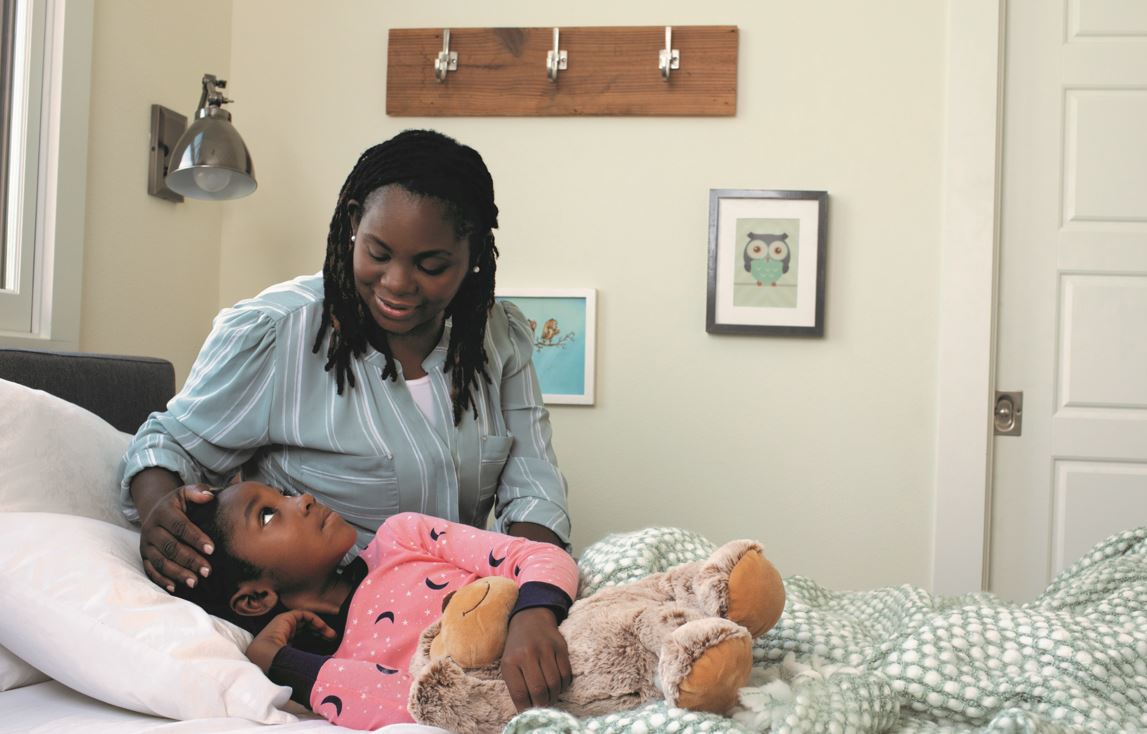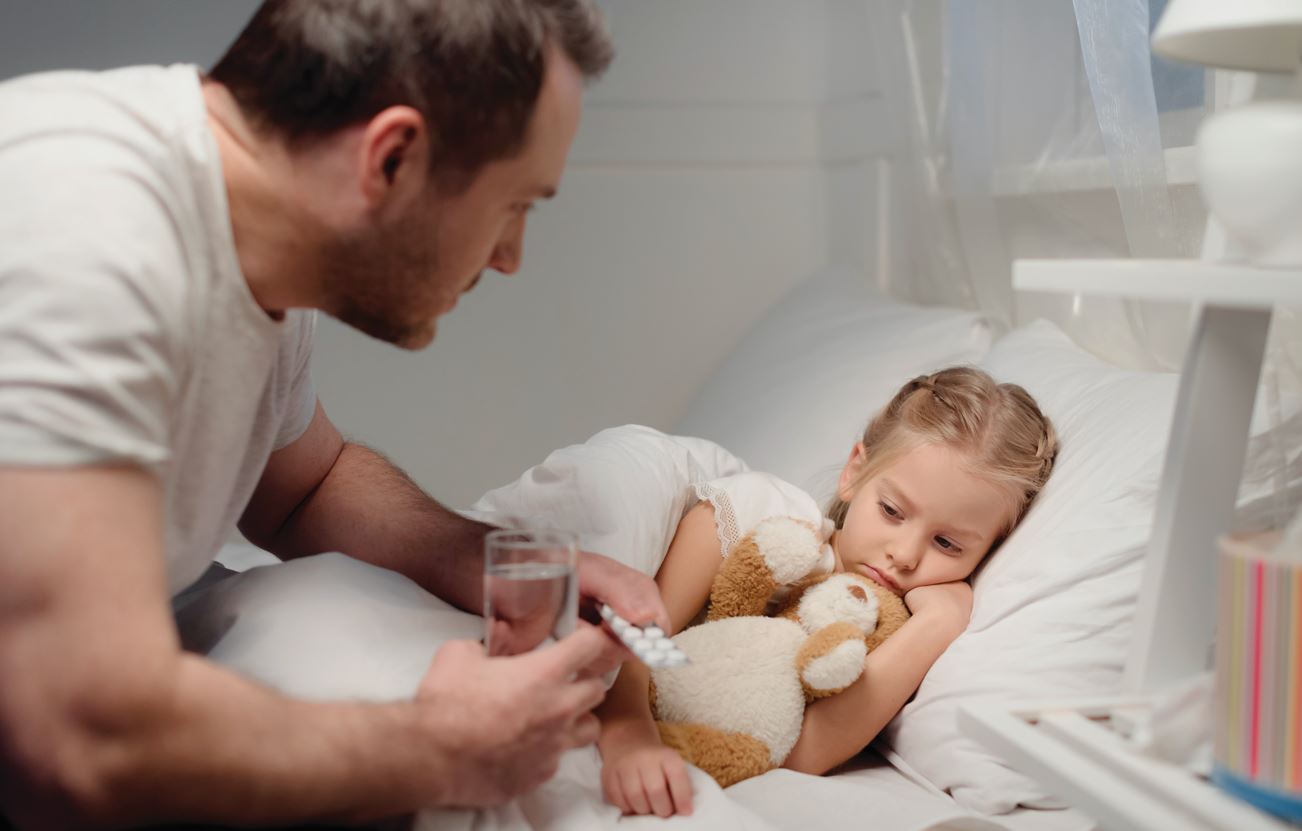Just like adults, children don’t function well when they’re not sleeping well. However, spotting sleep problems in children isn’t always easy.
Kids don’t necessarily know when they’re not getting good sleep. And sleep problems often don’t show up in children with the same symptoms that affect adults. Instead of sleepiness, a child might exhibit hyperactivity, for example.
 If you suspect your child has a sleep problem, it’s imperative to turn to an expert in pediatric sleep medicine for the right diagnosis and treatment. For more insights, we talked with Dr. Mohsin Maqbool, M.D., a pediatric neurologist and Medical Director of the Pediatric Sleep Institute in Plano. Here are excerpts.
If you suspect your child has a sleep problem, it’s imperative to turn to an expert in pediatric sleep medicine for the right diagnosis and treatment. For more insights, we talked with Dr. Mohsin Maqbool, M.D., a pediatric neurologist and Medical Director of the Pediatric Sleep Institute in Plano. Here are excerpts.
Q:Most parents expect a baby, especially a newborn, to keep them up at night. When does nighttime wakefulness signal a possible problem?
Pediatricians tend to rely on a few developmental milestones: At 6 months of age only about 50% of babies sleep through the night; by 9 months of age, this number grows to about 80-90%; by the age of 1 year, almost every child will be sleeping through the night and not requiring night-time feedings.
Keep in mind, however, that when a child is not sleeping through the night by age 1, it doesn’t necessarily mean there’s a medical problem. It could be a sleep training problem. Parents may unknowingly follow habits that lead baby to think it’s normal to wake up in the middle of the night for feeding or socializing. In that situation, my job is often to educate the parents to gradually adjust those habits that may be promoting night-time wakefulness.
Q: What about a toddler or young child? What are the signs of a sleep problem?
When parents tell me their toddler or preschool child is waking up in the middle of night, the first questions I ask are: “What does the child do when awake? How often does the child wake up? And how do you [the parents] know that this is happening?”
Many times, parents tell me, “We have a baby monitor, and it records every time the baby wakes up.” This happens two or three times a night, and the parents review the recording in the morning.
Usually, I can reassure parents. These instances of awakening, moving, or rolling over a few times an hour during the night are normal. However, if the child is moving five or more times an hour, we start to look into possibilities that might be disturbing the child’s sleep, like reflux, restless leg syndrome, difficulty breathing, sleep apnea or anxiety.

Q: What are the most common sleep-related symptoms or signs that lead parents to contact a physician or a sleep clinic?
Common problems include: the child is having difficulty waking up in the morning, or difficulty falling asleep at night. Or, there’s daytime sleepiness, where the child is falling asleep in the classroom and feeling tired all the time. Snoring, frequent waking at night, or restless, painful legs at nighttime are other common symptoms.
Interestingly, we have a good number of patients who come to our clinic during the summertime. That’s because the family has been on vacation and the whole family slept together in one hotel room. That’s the first time the parents become aware that their child snores or is not sleeping soundly at night.
Another big concern for many parents is what we call “parasomnias”—nightmares, night terrors, sleep eating or sleep walking. These are concerns only if they cross a certain threshold in terms of frequency. If they are happening only once every few months, it’s not a big concern. If it’s more often, parasomnias can be a sign of sleep deprivation which requires intervention.
Q: Are there signs of sleep problems that parents tend to overlook or not discuss with a doctor?
As parents, we tend to be more bothered by our children’s sleep problems when they affect our own sleep. If a child is sleeping in his or her own room, many times parents aren’t aware of sleep disturbances that are occurring. It’s important to keep an eye out for signs that your child is waking up often at night. If the child is taking multiple bathroom breaks during the night, that could be a sign of diabetes. Or it could be a sign of sleep apnea or other form of sleep disturbance. When a child is sleep-deprived, the body makes more urine, and as a result the child goes to bathroom more often, or may start wetting the bed, sometimes years after having been potty-trained. New onset bedwetting is always something that needs to be looked into.
Many parents ignore snoring or don’t consider it an abnormality. If your child is snoring, don't take that lightly, because it could be a sign of sleep apnea. A sleep study is needed to determine whether the child has sleep apnea, and if so, that needs to be addressed proactively.
Behavioral issues aren’t usually overlooked, but parents and doctors may not connect them with sleep disturbances. If a child was doing great in school and, all of a sudden starts, getting failing grades, or if child’s behavior has changed and they’ve started acting out, the possibility of sleep problems should be explored with your physician or a sleep doctor.

Q: Are there some issues that a pediatrician or other general practitioners might not be attuned to, because they don’t have the specialized knowledge of a sleep doctor?
Yes. Pediatricians are trained to ask open-ended questions during a well child visit, such as, “How's the baby sleeping?” But many times, due to time constraints, they may neglect to explore this in any depth.
When children complain that their legs are hurting or feeling restless at bedtime, pediatricians may dismiss that as “growing pains” and treat with pain medication. In reality, the child may have restless leg syndrome, and should be tested for iron deficiency. Eight out of 10 times, a child with restless legs at night will have low iron levels. With iron supplements, we can treat the problem and not just the symptoms.
Q: What kind of training does a sleep specialist typically have?
Sleep physicians always come from another discipline because, before 2011, there was a lack of training programs for sleep medicine. Physicians would “grandfather” into sleep medicine. You might be a pulmonologist, a neurologist, a psychiatrist or a pediatrician. You start to kind of see more and more patients with sleep issues and develop that expertise along the way.
That changed in 2011, when the American Academy of Sleep Medicine made fellowship training mandatory for anyone to practice sleep medicine or to serve as a director of a sleep lab.
In my case, I’m a pediatric neurologist, and I’ve also completed a fellowship in sleep medicine.
Q: Talk a little about how children’s sleep problems affect the rest of the family.
Sleep problems affect quality of life, not only for the child, but also for everybody else in the house. When a child isn’t sleeping well, every member of the family is affected.
Sometimes I see younger children who are actually getting the sleep they need, but they're waking up their parents, getting into bed with Mom and Dad, and constantly tossing and turning. That takes away the quality of sleep for the parents. In that case, it's the mom and/or dad who are my patients, and the solution is usually sleep training.
Older children and teens with sleep apnea or sleep disorders may present with ADHD-like symptoms or behavioral problems such as anxiety or depression. Lack of sleep exacerbates everything -- anxiety, moodiness, irritability. And, of course, it’s the parents who are at the receiving end of this behavior.
Q: What advice do you offer parents for helping children get a good night’s sleep?
During summer breaks, we tend to let our children go a little wild. We may let them sleep whenever they want to sleep and wake when they want to wake up. But there needs to be some semblance of structure.
I see many teenagers in my clinic in the first two or three months of school. They’re having insomnia at bedtime and difficulty waking at 7 a.m. That’s because, over the summer, they were going to bed at 4 a.m. or 5 a.m. and waking up at noon or 1 p.m. Now that school has started, it’s very hard time to get their bodies’ circadian rhythms aligned again with the school schedule.
My advice to parents: Don’t let your child stay up beyond 1 a.m. during the summer break. Even that's a little generous, but you’ve got to let children have some fun during summer, right?
Q: Talk a little about good sleep hygiene. What does that mean?
Basically, sleep hygiene is a set of habits that will help you sleep well. That means following a regular sleep schedule – going to bed and waking at the same times each day. Also, at least three hours before bedtime, you should be avoiding bright lights, computer or TV screens, heavy meals and vigorous exercise.
Keep the bed as a place for sleep and nothing but sleep. Do not read in bed. I know we all grew up reading in bed, but it's all about associations. We don't want to associate bed with any activities other than sleep.
Also, if you can't sleep and you’ve been awake 15 or 20 minutes, get out of bed. Don’t lie in the bed, awake, waiting for sleep to come. Instead, go and do something boring.
Sleep hygiene is so important. I’m surprised it’s not taught in schools.
The Pediatric Sleep Institute, a department of Texas Health Center for Diagnostics & Surgery, provides the necessary information for your physician to detect and diagnose your child's sleep disorder. A sleep evaluation can help your physician decide on a successful treatment plan that will benefit both you and your child. Sleep routines and treatments should be age appropriate in order to best meet the needs of the individual and to minimize the effects of sleep disorders.
If you are concerned that your child isn't getting a good night's sleep, give us a call today and let our sleep institute team get you started with finding a solution.

